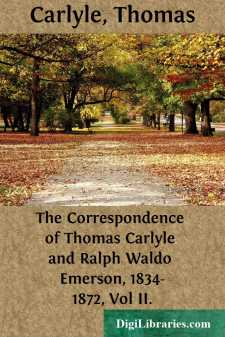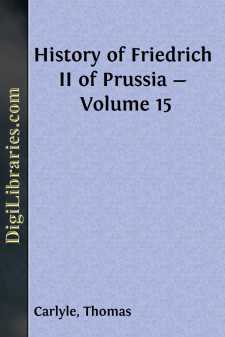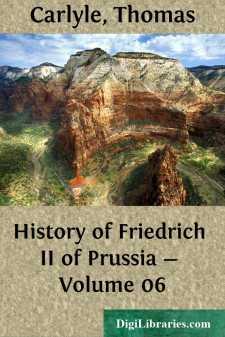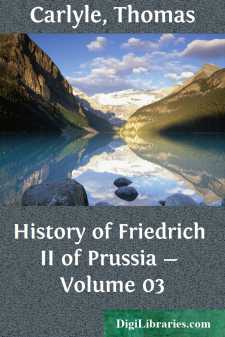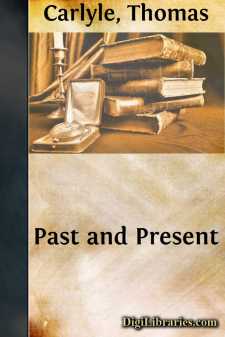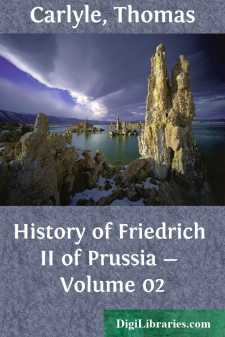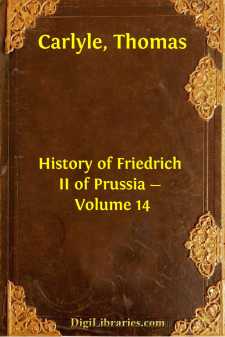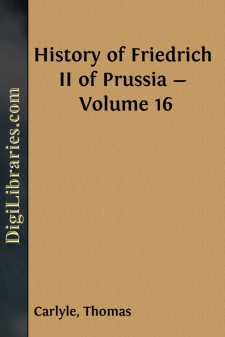Categories
- Antiques & Collectibles 13
- Architecture 36
- Art 48
- Bibles 22
- Biography & Autobiography 813
- Body, Mind & Spirit 141
- Business & Economics 28
- Children's Books 12
- Children's Fiction 9
- Computers 4
- Cooking 94
- Crafts & Hobbies 4
- Drama 346
- Education 46
- Family & Relationships 57
- Fiction 11826
- Games 19
- Gardening 17
- Health & Fitness 34
- History 1377
- House & Home 1
- Humor 147
- Juvenile Fiction 1873
- Juvenile Nonfiction 202
- Language Arts & Disciplines 88
- Law 16
- Literary Collections 686
- Literary Criticism 179
- Mathematics 13
- Medical 41
- Music 40
- Nature 179
- Non-Classifiable 1768
- Performing Arts 7
- Periodicals 1453
- Philosophy 64
- Photography 2
- Poetry 896
- Political Science 203
- Psychology 42
- Reference 154
- Religion 513
- Science 126
- Self-Help 83
- Social Science 81
- Sports & Recreation 34
- Study Aids 3
- Technology & Engineering 59
- Transportation 23
- Travel 463
- True Crime 29
Thomas Carlyle
Thomas Carlyle was a Scottish philosopher, satirical writer, essayist, historian, and teacher known for his complex and vivid prose. Born on December 4, 1795, in Ecclefechan, Scotland, he became a leading figure in the Victorian era with works like "Sartor Resartus" and "The French Revolution: A History." Carlyle's writings often delved into themes of heroism, social critique, and the importance of strong leadership.
Author's Books:
Sort by:
by:
Thomas Carlyle
CORRESPONDENCE OF CARLYLE AND EMERSON LXXVI. Emerson to Carlyle Concord, 1 July, 1842 My Dear Carlyle,—I have lately received from our slow friends, James Munroe & Co., $246 on account of their sales of the Miscellanies,—and I enclose a bill of Exchange for L51, which cost $246.50. It is a long time since I sent you any sketch of the account itself, and indeed a long time since it was posted,...
more...
by:
Thomas Carlyle
Chapter I.—PRELIMINARY: HOW THE MOMENT ARRIVED. Battle being once seen to be inevitable, it was Friedrich's plan not to wait for it, but to give it. Thanks to Friedrich Wilhelm and himself, there is no Army, nor ever was any, in such continual preparation. Military people say, "Some Countries take six months, some twelve, to get in motion for war: but in three weeks Prussia can be across the...
more...
by:
Thomas Carlyle
Chapter I. — FIFTH CRISIS IN THE KAISER'S SPECTRE-HUNT. The Crown-Prince's young Life being, by perverse chance, involved and as it were absorbed in that foolish question of his English Marriage, we have nothing for it but to continue our sad function; and go on painfully fishing out, and reducing to an authentic form, what traces of him there are, from that disastrous beggarly...
more...
by:
Thomas Carlyle
Chapter I. — DOUBLE-MARRIAGE IS DECIDED ON. We saw George I. at Berlin in October, 1723, looking out upon his little Grandson drilling the Cadets there; but we did not mention what important errand had brought his Majesty thither. Visits between Hanover and Berlin had been frequent for a long time back; the young Queen of Prussia, sometimes with her husband, sometimes without, running often over to...
more...
by:
Thomas Carlyle
Chapter I. — KURFURST FRIEDRICH I. Burggraf Friedrich, on his first coming to Brandenburg, found but a cool reception as Statthalter. ["Johannistage" (24 June) "1412," he first set foot in Brandenburg, with due escort, in due state; only Statthalter (Viceregent) as yet: Pauli, i. 594, ii. 58; Stenzel, Geschichte des Preussischen Staats (Hamburg, 1830, 1851), i. 167-169.] He came as...
more...
by:
Thomas Carlyle
BIOGRAPHICAL INTRODUCTION. There comes a time in the career of every man of genius who has devoted a long life to the instruction and enlightenment of his fellow-creatures, when he receives before his death all the honours paid by posterity. Thus when a great essayist or historian lives to attain a classic and world-wide fame, his own biography becomes as interesting to the public as those he himself...
more...
by:
Thomas Carlyle
INTRODUCTION Being an appreciation from "The Dial" (July 1843) by Ralph Waldo Emerson Here is Carlyle's new poem, his Iliad of English woes, to follow his poem on France, entitled the History of the French Revolution. In its first aspect it is a political tract, and since Burke, since Milton, we have had nothing to compare with it. It grapples honestly with the...
more...
by:
Thomas Carlyle
Chapter I. — BRANNIBOR: HENRY THE FOWLER. The Brandenburg Countries, till they become related to the Hohenzollern Family which now rules there, have no History that has proved memorable to mankind. There has indeed been a good deal written under that title; but there is by no means much known, and of that again there is alarmingly little that is worth knowing or remembering. Pytheas, the Marseilles...
more...
by:
Thomas Carlyle
Chapter I.—FRIEDRICH RESUMES HIS PEACEABLE PURSUITS. Friedrich's own Peace being made on such terms, his wish and hope was, that it might soon be followed by a general European one; that, the live-coal, which had kindled this War, being quenched, the War itself might go out. Silesia is his; farther interest in the Controversy, except that it would end itself in some fair manner, he has none....
more...
by:
Thomas Carlyle
Chapter I.—SANS-SOUCI. Friedrich has now climbed the heights, and sees himself on the upper table-land of Victory and Success; his desperate life-and-death struggles triumphantly ended. What may be ahead, nobody knows; but here is fair outlook that his enemies and Austria itself have had enough of him. No wringing of his Silesia from this "bad Man." Not to be overset, this one, by never such...
more...


